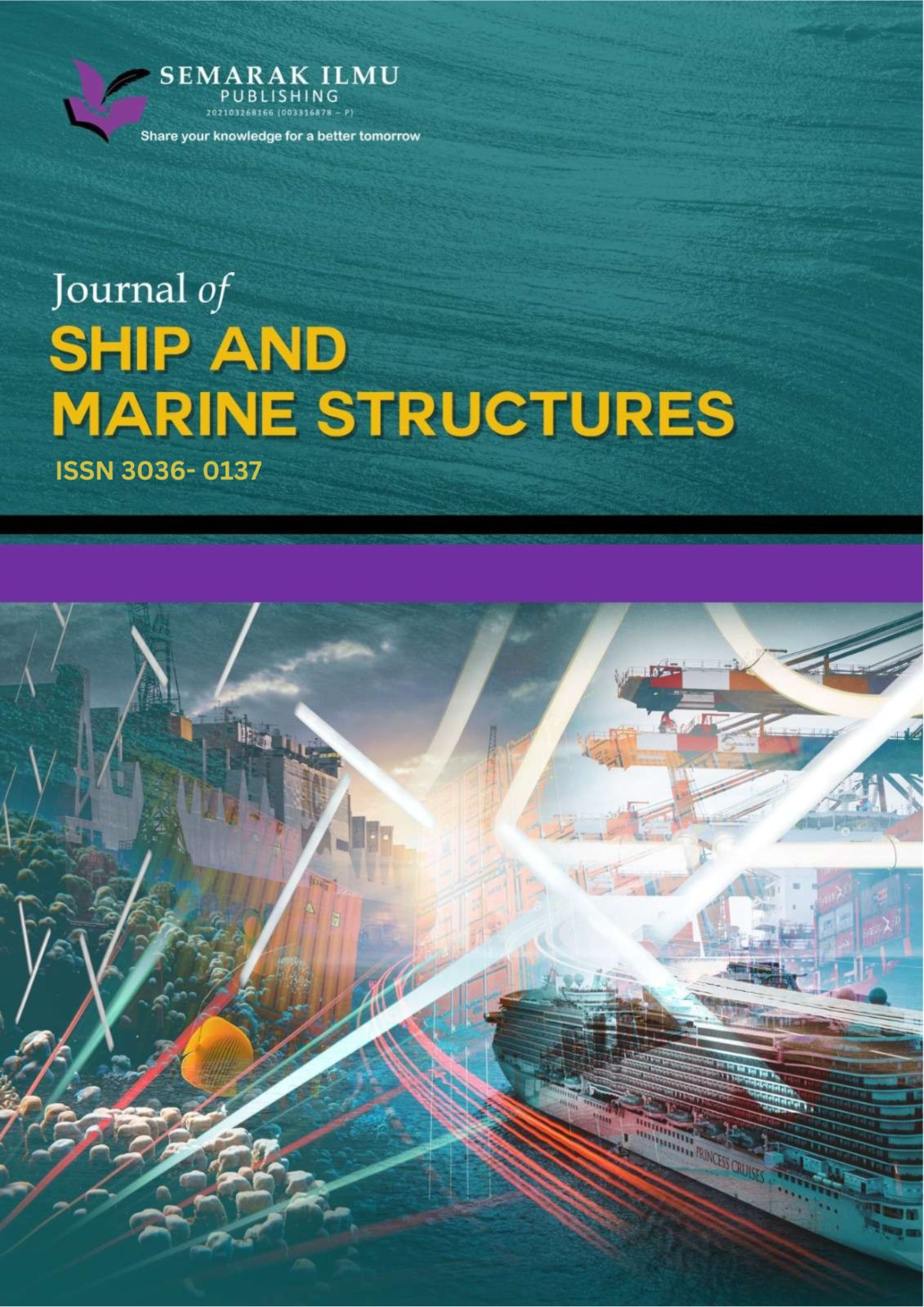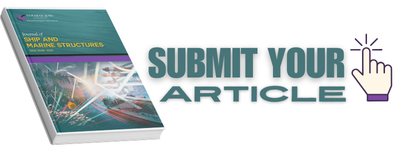Optimization Study of Blended Nanoparticles – Palm Biodiesel Fuel on The Performance of Marine Diesel Engine
DOI:
https://doi.org/10.37934/jsms.5.1.112Keywords:
Nanoparticle-enhanced biodiesel, Response Surface Methodology (RSM), marine diesel engine optimizationAbstract
The marine shipping industry's significant contribution to global emissions has intensified the search for cleaner fuel alternatives. This study investigated the optimization of nanoparticle-blended palm biodiesel fuel for marine diesel engine applications, focusing on both performance enhancement and emissions reduction. Three types of metal oxide nanoparticles (SiO₂, Al₂O₃, and TiO₂) were evaluated at concentrations of 50, 100, and 150 ppm in a B20 palm biodiesel blend. Initial stability tests over a 15-day period revealed that only SiO₂-blended samples maintained the required stability for engine testing. Experimental investigations were conducted on a Cummins NT-855 marine diesel engine coupled with a 250-kW dynamometer, operating at a constant speed of 1400 rpm under varying load conditions. Response Surface Methodology (RSM) with Central Composite Design (CCD) was employed to optimize the relationship between input variables (engine load and nanoparticle concentration) and response parameters (brake torque, brake power, and emissions). The study revealed that SiO₂ nanoparticles at 67.26 ppm concentration under 200 Nm engine load provided optimal performance, achieving 95.3% desirability with significant reductions in CO, CO₂, and NOx emissions. Statistical analysis through ANOVA validated the model's accuracy with an R² value exceeding 0.95. This research demonstrates the potential of nanoparticle-enhanced biodiesel as a viable solution for reducing marine engine emissions while maintaining performance standards.














